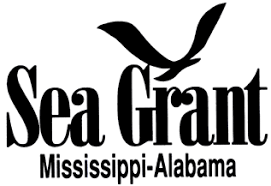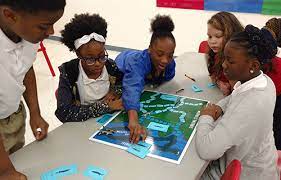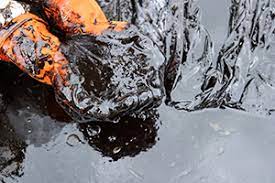USM GCRL - Teacher Professional Development
March 15, 2021
Teachers can earn continuing education credits at GCRL.
The Marine Education Center offers professional and volunteer training programs for adults, including K-12 classroom teachers. These programs cover an assortment of marine and coastal processes and issues, and are sponsored through a variety of sources. The
Mississippi-Alabama Sea Grant Consortium (MASGC) supports our teacher development program, either through full sponsorship or partnership.
For additional information or questions contact Jessie Kastler at 228-818-8090 or
Jessica.kastler@usm.edu.
All field programs are subject to substitution of activities or postponement for poor weather. We will inform registered participants of any changes via email.
Continuing Education Credit
CEUs are available for teachers through the University of Southern Mississippi Office of Professional Development and Educational Outreach (PDEO). The number of CEUs awarded in each program will be posted here upon approval of our request of PDEO to offer them. Because we update our offerings every time they are offered and they must be approved each time, the number of CEUs available for a workshop is not known until about one month before it is held. We submit paperwork to the PDEO about one week following the end of each workshop, and later than two weeks.
You may request a copy of CEUs awarded in the past here.
Registration
Register here. Each workshop requires submission of a separate registration form. Space is limited so register early! For additional information or questions about upcoming programs contact Dani Bailey at 228-818-8088 or
Danielle.bailey@usm.edu.
Information for Participants [pdf]
Sturgeon in the Watershed Teaching Opportunity
The purpose of this project is to develop and implement a Meaningful Watershed Educational Experience in the Mississippi Sound watersheds. The Project uses previously developed classroom and field elements of map use and water sampling to teach students basic watershed concepts. New content introduces habitat use of the Pearl and Pascagoula Rivers by the endangered Gulf Sturgeon as a way of discussing natural and human changes occurring in watersheds where participating students live and learn.
Downloadable Curriculum
Upcoming Programs for 2021 (Registration Open January 15)
Oil Spill Science 10-year Review
April 24-25
What is the role of science during an environmental emergency? What have scientists learned since the Deepwater Horizon Oil Spill? How can you share this with your students? Join us to consider how science expands knowledge and how the body of knowledge has changed since the 2010 oil spill.
Problem-based Learning in Community Resilience - NOAA B-WET
July 7-9
During July we will host a three-day workshop. This workshop is a part of a NOAA B-WET project that focuses on promoting community resilience to coastal hazards. This program builds on other watershed literacy programs we have produced to educate high school students on rising sea levels and coastal hazards that may affect their communities. Using problem-based-learning, teams of students explore historical flooding in their neighborhoods and propose a solution to one of several coastal community challenges. Selected students from each school will present their ideas to community resilience professionals at the 5th Stewardship Summit for Resilience at the new Marine Education Center.
This program was piloted by two local teachers and is now being expanded to reach classrooms in LA, MS, AL, and FL. Participants must be high school teachers who can deliver this project to their school or district and have students participate in a stewardship summit.
The Poop Map Project
July 22-23
This July, we are introducing The Poop Map Project through a two-day watershed education workshop for teachers of grades 7-12 sponsored by the EPA Gulf of Mexico Program. Our focus will be - you guessed it - poop! Pathogenic bacteria that enter natural water bodies from rainwater runoff.
Participants will
- Collect, analyze, enter, and interpret water samples collected from the Miss Peetsy B along Davis Bayou, from the new Marine Education Center to the Mississippi Sound;
- Learn about the Mississippi Beach Monitoring Program and its policies on beach closure;
- Discuss the Marine Debris Tracking App (sponsored by NOAA) and public outreach as stewardship;
- Schedule an MEC Miss Peetsy B field cruise trip for 40 students. Students will receive lunch and there is an allowance for school bus transport;
- Receive a stipend for completion and lunch both days. If you need lodging, please ask about it because we might be able to provide that as well.


